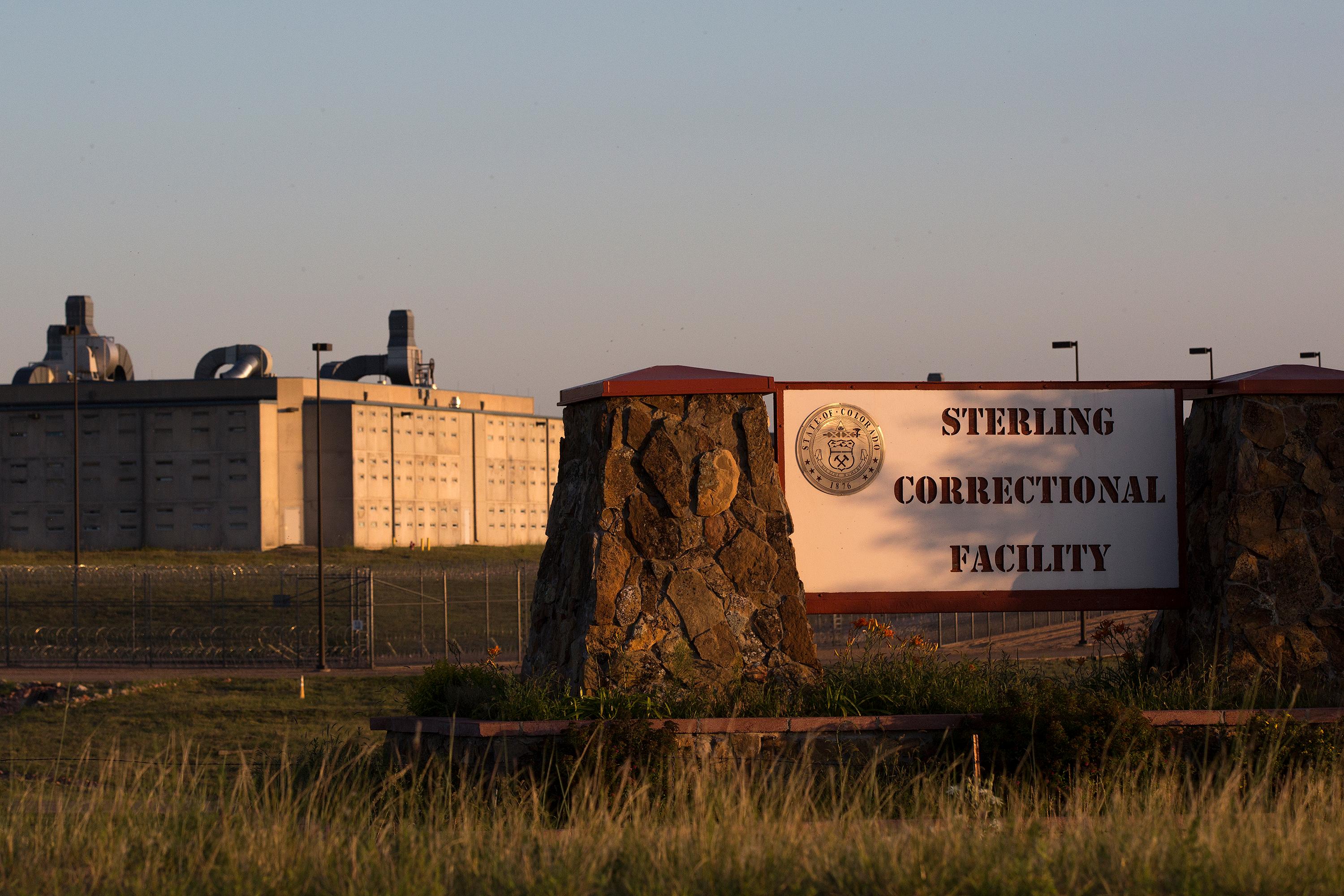
Updated April 24 @ 4:04 p.m.
Facing fears of a widespread COVID-19 outbreak among the incarcerated, state officials have agreed to the early release of almost 150 people so far from state prisons so it is easier to socially distance and space people out inside.
Officials said Friday that the Sterling Correctional Facility is the site of the single largest COVID-19 outbreak so far in Colorado, with 138 people testing positive and more than 200 tests pending.
State officials decided to do intensive testing inside the state’s largest prison after eight inmates were sick and several more were showing symptoms.
“Given the insidious nature of this virus, we had suspected that despite seeing a relatively low number of inmates with symptoms, the number of positive was potentially much higher,” said Department of Corrections Executive Director Dean Williams. “That is exactly why we conducted this large-scale testing.”
Earlier in April, Gov. Jared Polis issued an executive order allowing for limited early offender releases in attempts of lowering prison populations — which had been hovering at a less than 1 percent vacancy rate.
The state’s incarcerated population is usually around 20,000. Currently, there is an 8 percent vacancy rate and about 16,508 people inside facilities across the state.
To qualify for early release, prisoners have to fall into one of three categories ordered by Polis. This includes prisoners with special medical needs, most of whom have committed “victimless” crimes, those within a few months of parole eligibility anyway and those who have been on good behavior and have scheduled release dates before August 2021.
Officials have decided not to release anyone who would then be homeless.
“This cannot be business as usual, we have to move aggressively,” said Williams in a Facebook townhall with elected officials and criminal justice advocates. “We will not look back and say, ‘Gee we did too much to address the pandemic, to alleviate the burden of what’s happening behind the walls.’ We’ll look back and wonder if we did enough.”
Those offenders referred for release under a medical exemption are subject to approval by the parole board.
Williams has attributed the ban on transfers from county jails as a helpful policy to keep massive outbreaks from happening in any other facility in Colorado — at least so far.
That moratorium, along with regular attrition and paroles being granted, has dropped the prison population to the lowest numbers in more than a decade.
Williams has been open about the fact he wanted to do some of these COVID-19 reforms anyway to reboot the state’s criminal justice system.
“Quite frankly I’ve been on this journey before the pandemic,” Williams said in the town hall. “I think there are lessons to be learned from crises like this … I think it’s going to push us to be very creative and to think about how we’re doing prison … Don’t we want prisons to work and don’t we want punishment to work?”
Larimer County district attorney Cliff Riedel said prosecutors have cooperated with state officials on the releases, but he doesn’t endorse decisions made in the name of a global pandemic as long-term policy goals.
“The DAs have understood the need for flexibility in these unique times and we’re willing to cooperate with DOC for some early releases that are necessitated by the pandemic,” Riedel said. “But I think we’ve also been very clear that just because we’re doing this on a short-term basis because of the pandemic, we’re not setting a blueprint on a new release procedure when we’re not in a pandemic situation.”
Criminal justice reform advocates and lawyers representing inmates inside facilities say the state has been slow to implement social distancing inside prisons and face masks.
State officials announced last week that prisoners were making masks for each other — at a rate of 4500 a day — and that, eventually, everyone would have one.
Inmates don’t get hand sanitizer, due to the alcohol content, but officials say everyone gets two free bars of soap a week.
Despite an increase in some supplies, behavior has been slow to change, criminal defense lawyer Gail Johnson said. She pointed out that, as of last week, there were still movie nights and gatherings — events that would shock the average person who has been engaged in social distancing since March.
“At the Denver women’s prison, they had 150 female prisoners sitting shoulder to shoulder in plastic chairs for movie night in the gymnasium, plus staff in the same room,” Johnson said. “I don’t think we have good data on how many prisoners and corrections officers have been infected — but it is well-known it is difficult at best to achieve social distancing.”
Corrections spokeswoman Annie Skinner said this was inaccurate, that the last movie night at the facility was April 6 and that the women sat on sanitized chairs that were appropriately spaced and they ate popcorn from individual baggies that was prepared in advance.
Johnson has applied for a medical exemption release for one of her clients, Lisa Lesyshen, who was convicted of second-degree murder in 2014 and is serving a 40-year sentence.
“There's an imperative right now to try and protect these vulnerable people through special needs parole,” Johnson said. “So we don’t have prisoners who are sentenced to a term of years serving in effect a death sentence.”
Lesyshen is a paraplegic with limited lung capacity. Her application hasn’t been granted.
Editor's Note: This story was updated to reflect new information from the Department of Corrections and a massive outbreak in the Sterling Correctional Facility








